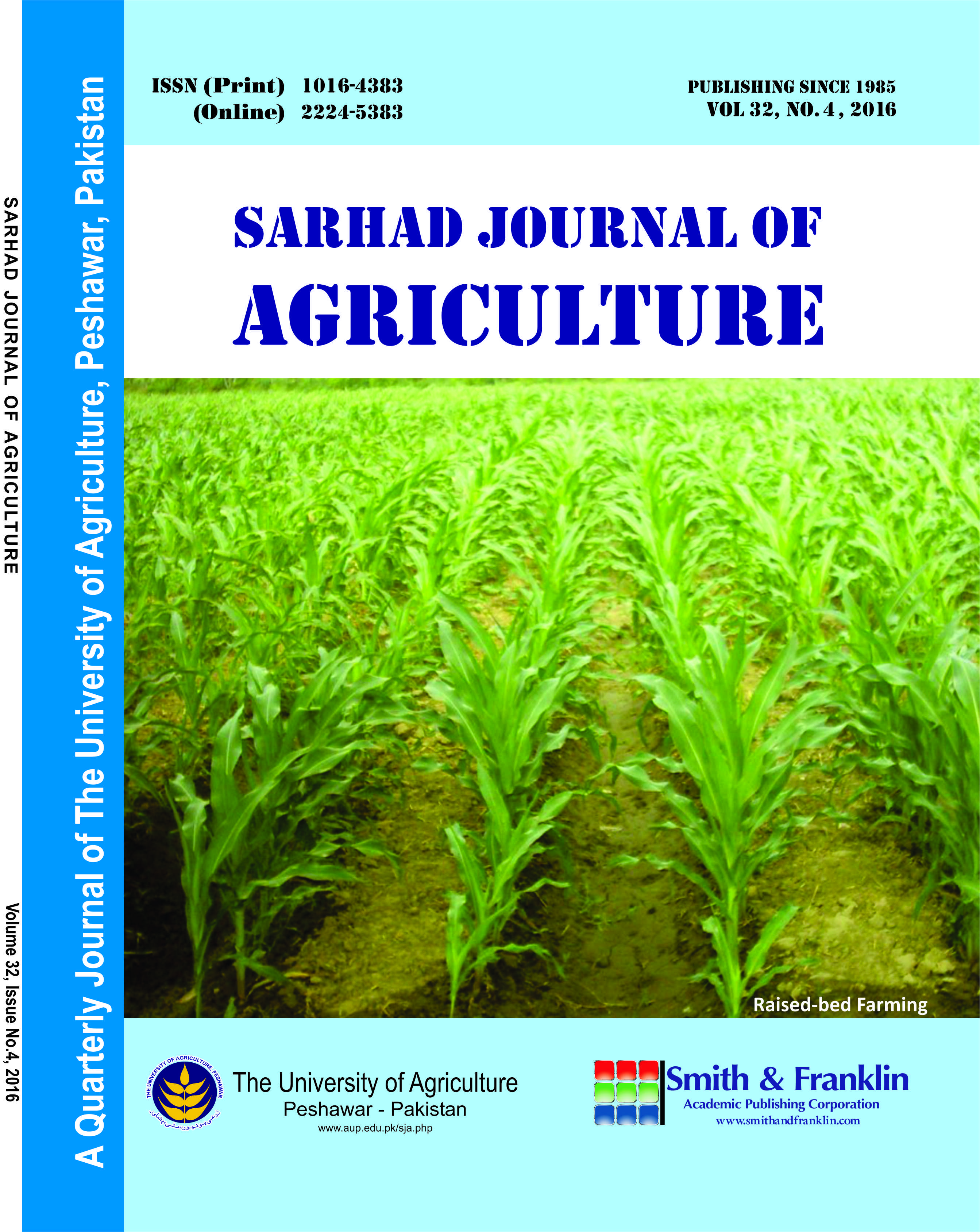1Sugarcane Research Institute, Ayub Agricultural Research Institute, Faisalabad, Pakistan; 2Institute of Soil and Environmental Sciences, University of Agriculture, Faisalabad, Pakistan; 3Soil Chemistry Section, Institute of Soil Chemistry and Environmental Sciences, Ayub Agricultural Research Institute, Faisalabad, Pakistan; 4Director General, Ayub Agricultural Research Institute, Punjab, Pakistan
ABSTRACT
Increase in temperature, rainfall fluctuations and poor quality water under present climatic conditions has drastic effect on plant physiology and growth. The current research experiment was performed to screen salt tolerant wheat varieties grown in hydroponic and soil medium on the basis of plant photosynthetic rate, potassium (K+) and sodium (Na+) contents. Twenty wheat genotypes/varieties were grown in hydroponic culture, having different residual sodium carbonate (RSC), electrical conductivity (EC), and sodium adsorption ratio (SAR). A substantial decrease in plant photosynthetic rate, and potassium contents were noted in all varieties under salt stress. Varieties i.e. V07096 and V05082 showed higher rate of photosynthesis and potassium contents than V05003 and V07194. The salt-tolerant and salt-sensitive genotypes, V07096 and V05003, respectively were then grown in soil medium. Lower plant sodium contents in soil medium were also observed in V07096 variety under salt stress treatments than V05003. Salt tolerant variety also showed higher potassium contents and photosynthetic rate in salt stress soil medium. Thus plant Na+, K+ contents, and photosynthetic rate in soil and hydroponic medium can be used as standards to screen salt -tolerant varieties.
To share on other social networks, click on any
share button. What are these?







